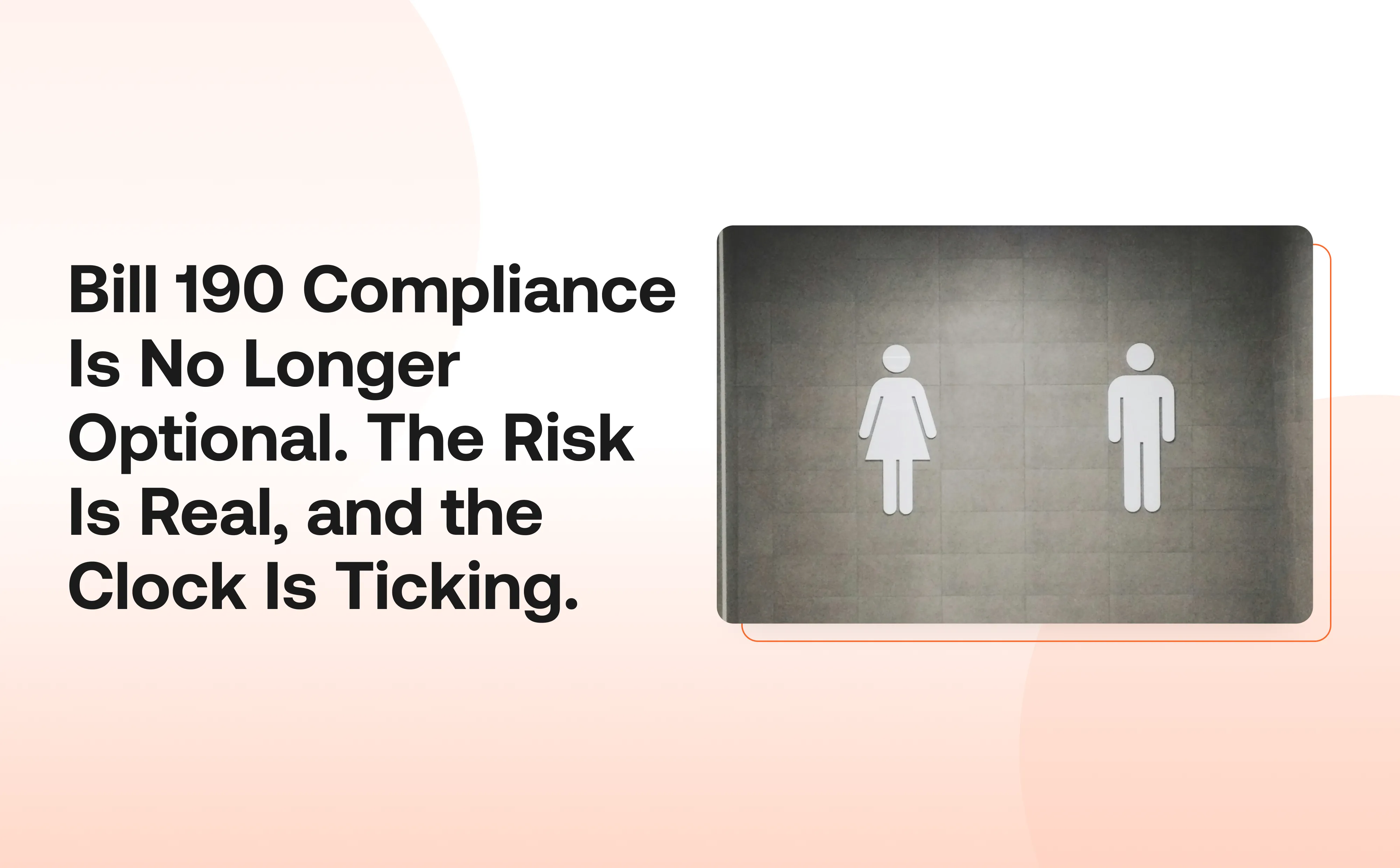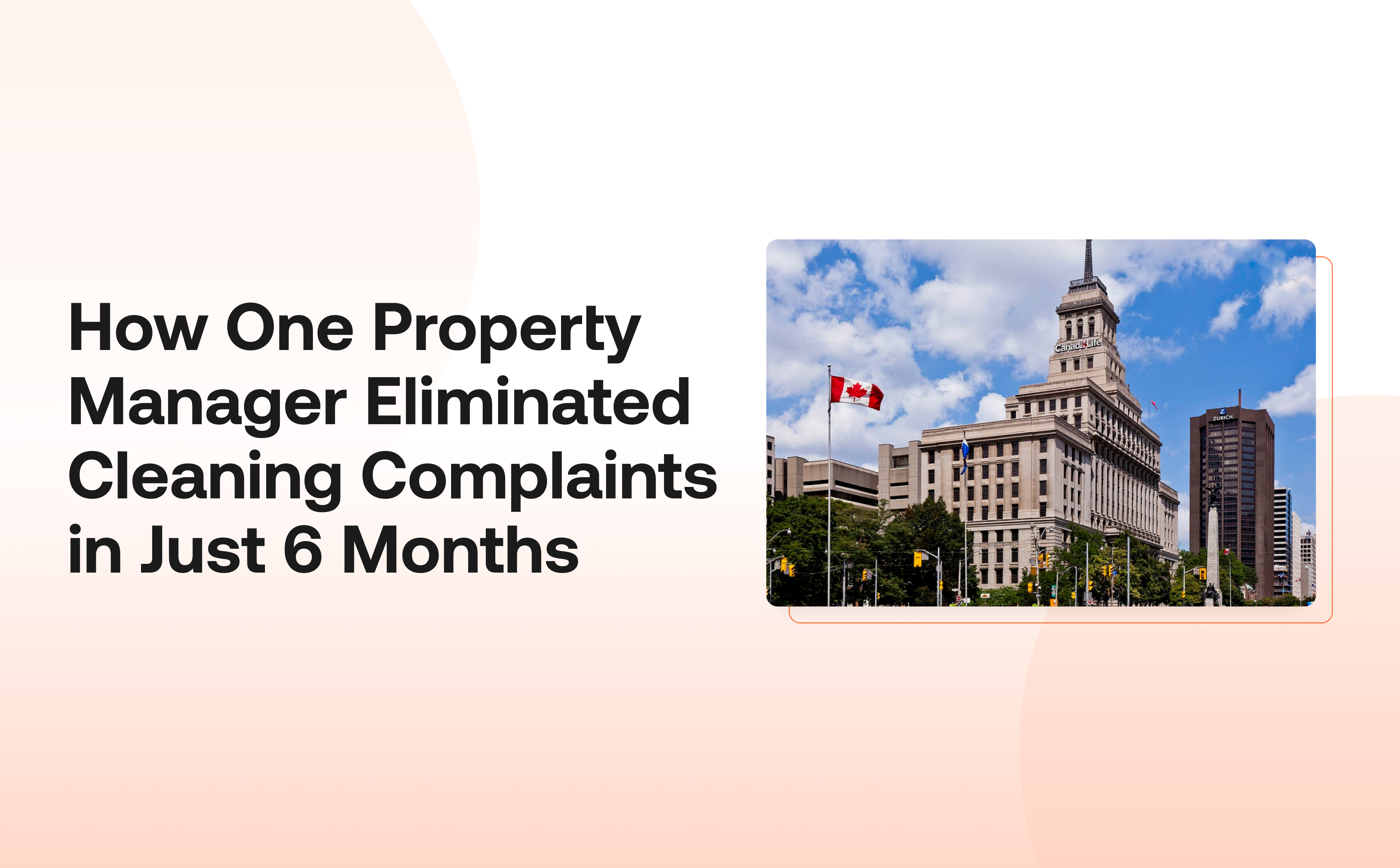

5 Lessons We Learned from Installing 10k+ Sensors in Over 100 Buildings in 3 Years
June 3, 2022
•
min to read
5 Lessons We Learned from Installing 10k+ Sensors in Over 100 Buildings in 3 Years

June 3, 2022
•
min to read


5 Lessons We Learned from Installing 10k+ Sensors in Over 100 Buildings in 3 Years

June 3, 2022
•
min to read

5 Lessons Learned from Installing 10k+ Sensors in Over 100 Buildings in 3 Years
Mero’s team of implementation experts, hardware specialists, product managers, and data analysts spend all day, every day improving and creating new ways to optimize commercial building cleanliness. Our team’s day-to-day work includes:
- Going on site visits
- Onboarding customers
- Installing sensors
- Training cleaning staff
- Creating custom reports
- And much more
They partner with customers in industries ranging from A-class commercial buildings to universities, from stadiums to airports. They live on dashboards, spreadsheet with enormous datasets and of course, on-site: consulting customers, training cleaners and making installs.
To date, they’ve installed 10,000 plus sensors in over 100 buildings.
Fun fact: that’s enough to stretch over 10 football fields if you were to align them one after the other.
Because our team has a lot of experience, I asked them - Cole, Paige, Tristan, - to share the lessons they’ve learned from over three years spent in the trenches of installing hardware, educating buyers and improving our platform.
Lesson #1: Never Forget The Human Element
When new technologies are introduced, you always run into the risk that people feel alienated by it and see it as a disruptive change that executives forced on them.
Smart building transformation is as much about driving change in people as it’s about technology.
That’s why communication is important from the beginning, both anticipating needs and worries and maintaining an open channel during and after implementation.
Our team communicates with customers and tenants ahead of time so they know what to anticipe during the deployment.
That way, tenants are not alarmed if they notice new equipment like our base stations. We also provide tenants with material about what to expect with the new enhancements that the property is putting in place by bringing Mero. We’ve perfected a communication action plan with dates specific to each customers.

We also focus on educating customers and getting buy-in from everyone. From maintenance teams to individual cleaners, property managers to executives, we make sure everyone involved understand the technology and its benefits.
It’s a crucial step to drive change and implement our solution successfully. It pays dividends tenfold down the line by making the onboarding process smoother and converting doubters into champions. This is especially important since Mero is often the first IoT product introduced into buildings we’re working with.
In our founding story, we mentioned how the consultative nature of our solution is what makes Mero unique.
From day one, we understood that people were ultimately in the driver’s seat. Working hand in hand with customers to educate them about the benefits of real-time data is how we execute building transformation and succeed together.
So it’s part of our process to involve everyone in the company— especially speaking with cleaners working on-site. After all, they're the ones who will be doing the work and empowered day to day by Mero.
We sit down with them and hear their concerns. We try to understand their hesitations about how their jobs will change. They always find it refreshing that a technology company is taking the time to sit down with them and hear their concerns.
In short, sitting down with everyone at the company to really dive deep into the mechanics of the building - both from a technology and people processes standpoint is how Mero succeeds.
Lesson #2: Onboarding experiences are not one-size fits all
Mero has ramped up fast. Growing 3x during the pandemic, we’ve faced growing pains, uncovered new use cases and refined our processes. With an increase of installs at such a rapid pace, I’ve realized 2 things:
1 . How dynamic the industry truly is.
2 . How dynamic our solution and onboarding experience needed to be.
It comes down to the granularity of individual building characteristics. Every building is different and every property manager have similar but slightly different needs. That makes makes every onboarding experience different from the back end, equipment preparations to installations.

I’ve also learned about the importance of communicating throughout the onboarding process. We’ve implemented new processes to account for individual steps including KPI touchpoints.
Our goals is to act as consultants for our clients. By not only communicating to the customers the onboarding process but keeping them engaged month over month and quarter over quarter with custom reports so they achieve the best results with our platform.
Lesson #3: Insights Over Data
This is a lesson we learned early on: it’s useless to give people random data or even insights and expect them to know how to use it, whether they property managers, cleaners, or executives.

So we're very careful in our approach to delivering and presenting data by keeping everything actionable and relevant. And that means showing insights customers can act on fast to impact their P&L, revenue or cash savings.
For example, we don't limit ourselves to showing how much supply is left in a dispenser. Mero shows when cleaners need to go to each space. Or how long cleaners need to spend in this space, and so on.
Lesson #4: Talk to Your Customers. They are the Experts.
Since I joined Mero, I learned how customers are experts in their space. As product manager, I conduct user interviews when we need insights about current or upcoming features. I talk to cleaners, VPs of cleaning companies , property managers and so on.
By listening to how our customers are able to think of my questions in multiple lenses and noticing how many years they have been in their roles, I’ve realized that we had a wealth of knowledge at our disposable - it was on us to tap into that.
I always have interview interview questions prepared. And I make sure that I get the answers I need. But I always end up getting insights into other areas.
Second, there are a lot of moving parts in commercial office buildings. There's often a lot of overhead, our clients are very busy. Being a property managers is a big job.
For that reason, understanding how the overhead might affect implementation at the building level, or knowing how many players have to be involved when we push a new feature is critical.
And speaking with one customers responsible for one building often has a compounding effect on other buildings. We learn things that applies across buildings.
By speaking with users directly, I can prioritize features that they have identified a need for or improve features that users have requested.

As a company, we’ve kept improving to maintain this feedback loop. Documenting and sharing insights internally is something that I’ve become really cognizant about.
Lesson #5: Buildings Are Living, Breathing Spaces.
The great thing about buildings, and people in general is that they are living and breathing spaces. There are always new events coming in. Maybe there's a company that was very successful, is adding headcount and needs more space on a daily basis.
And so cleaning is constantly evolving and changing based on traffic patterns, but also new industry trends around cleaning and sanitation.
In turn, Mero is evolving with buildings and making sure that cleaning and maintenance staff evolve with the trends whether it’s occupancy, new cleaning standards brough on by tenants, demand for transparency etc.
So it's really an ongoing system and ongoing response to the changing needs of the building.





